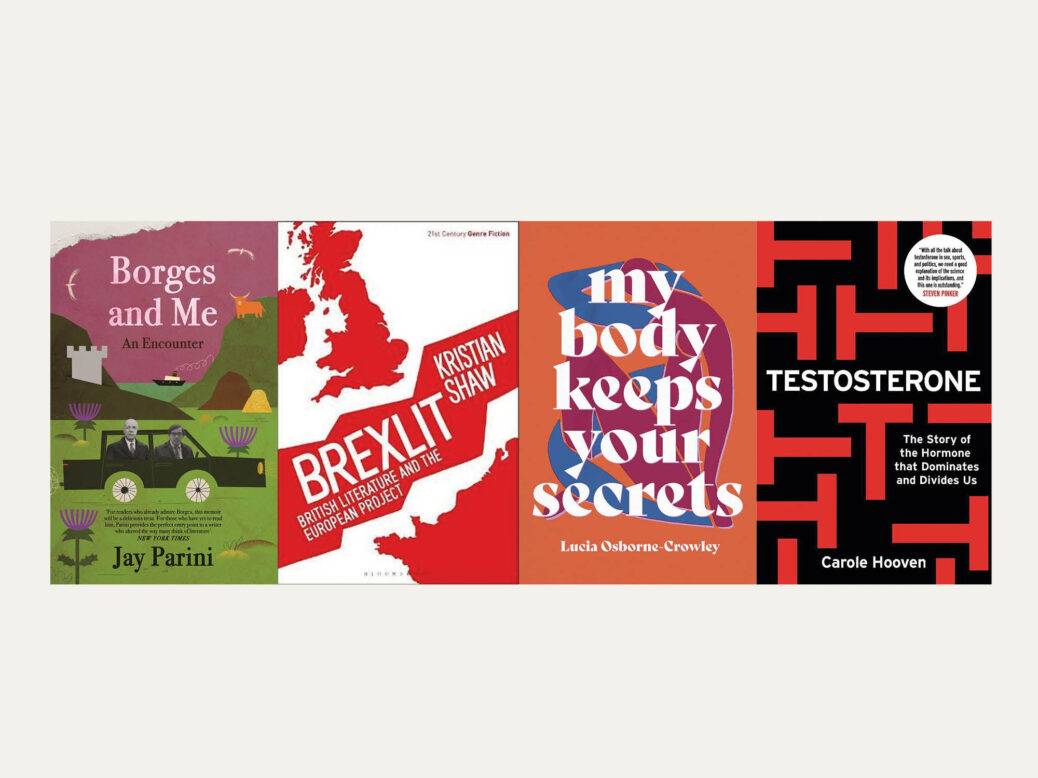
Testosterone: The Story of the Hormone that Dominates and Divides Us by Carole Hooven

Are the differences between men and women innate and biologically defined, or learned through socialisation? This is the question at the core of the Harvard professor Carole Hooven’s study of testosterone. Her answer – that the science inarguably shows that the hormone divides the sexes and has a major impact on behaviour – is compelling. Testosterone draws together the evidence of animal experiments, behavioural endocrinology, “artificial experiments”, and natural conditions to show how the hormone shapes aggression, sex, childhood play, sporting abilities, gender transition and more.
Hooven acknowledges that her position is at odds with a lot of recent literature on gender, which emphasises the role of nurture over nature. That the hormone shapes not just bodies but behaviour from the early stages of foetal development is often seen, she writes, as fatalistic. More than that, it suggests that all male behaviour is natural and therefore good, or at least excusable. But “nothing that we know about T or sex difference implies that we have to accept current levels of assault”. Knowing why we do what we do, she believes, is essential to changing it.
By Pippa Bailey
Octopus, 352pp, £16.99
Brexlit: British Literature and the European Project by Kristian Shaw

The novel, says Kristian Shaw, was “once a key tool in the production of a national identity – a socially transformative instrument in the shaping of public consciousness”. Not that he blames writers for Britain’s equivocal relationship with the continent. Rather, in this academic study he looks at how novelists have engaged with the European idea, both before and after Brexit. The result of the 2016 referendum shouldn’t have come as a surprise, he says, since writers had long been exploring Euroscepticism. He marshals some 100 contemporary practitioners to prove his point, from Zadie Smith and Andrew Marr to Ali Smith and Kazuo Ishiguro.
In his 1996 story collection Cross Channel, Julian Barnes called Britain “the problem child of Europe” and wrote that national recalcitrance provided fertile material for novelists – it still does. Post-Brexit, fiction has a new set of questions to engage with, including the matter of what constitutes Britishness now and how to negotiate the post-truth age that the rupture helped to nurture. Now that the deed is done, it is writers rather than politicians who are taking on the ramifications of Brexit.
By Michael Prodger
Bloomsbury, 272pp, £90
My Body Keeps Your Secrets by Lucia Osborne-Crowley

In the post-#MeToo era there is plenty of literature on abuse and consent. But it is rare to find a book as powerful as My Body Keeps Your Secrets, whose title riffs on Bessel van der Kolk’s 2015 book The Body Keeps The Score. Through interviews with women and non-binary people, woven with memoir, the journalist Lucia Osborne-Crowley depicts how chronic shame eats away not only at a person’s sense of self, but also at the place the self has no choice but to inhabit: the body.
The novelistic tone with which she tells others’ stories recalls Lisa Taddeo’s Three Women, yet unlike Taddeo, Osborne-Crowley is always present in the narrative. Her own experiences of sexual abuse and rape are examined with self-aware dexterity. But awareness itself is not a cure. She lives with endometriosis and Crohn’s disease; ongoing research suggests many chronic pain conditions could be related to trauma. Sexual problems and eating disorders also afflict women traumatised by shame. “I have never once been able to enjoy sex,” Osborne-Crowley writes. “Even that is an overstatement – I have barely been able to tolerate it.” So much of shame is about doubting reality, having not felt seen or understood. But the body is an undeniable truth. What the mind cannot fathom, the body can.
By Emily Bootle
The Indigo Press, 304pp, £12.99
Borges and Me: An Encounter by Jay Parini

Jay Parini’s genial fictionalised travelogue describes a road trip from St Andrews to Inverness and back again, a journey instigated by the blind Argentine writer Jorge Luis Borges, then age 71. Parini, at the time a postgraduate student who had moved to Scotland to avoid the Vietnam draft, served not just as Borges’s driver but also his “eyes”, describing the natural glories his companion was unable to see.
Acquaintance with the mysterious ways of genius is a feature of Parini’s copious backlist – he’s a literary biographer who publishes novels about writers – and the new book prompts comparison to James Boswell’s account of touring Scotland and the Hebrides with Samuel Johnson. There’s much evidence of Borges’s “wild”, “disjunctive” and at times irritatingly grand conversational style, but the framing saves the result from being table talk with a Highlands backdrop. As the title suggests, the story is concerned with Parini’s own fate (the words “Borges is in town” don’t appear until page 78). And, as it also hints – by playing on Borges’s short story “Borges and I” – the book doubles, in a light-touch way, as a tribute to its subject, whose peerless work, most notably gathered in Labyrinths and Fictions, turned in part on the seductions of mythology.
By Leo Robson
Canongate, 320pp, £14.99
[see also: Reviewed in short: New books by Ronald Hutton, Gayle Tzemach Lemmon, Pat Barker and Maia Szalavitz]
This article appears in the 10 Sep 2021 issue of the New Statesman, Labour's lost future





